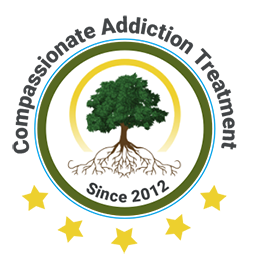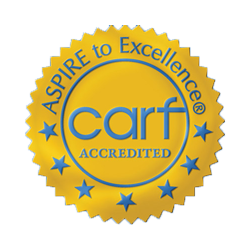Habitual use of drugs or alcohol can alter the chemical composition of the brain and cause dependence to develop. During withdrawal from an addictive substance, the brain’s chemical functions and circuits react by trying to regulate themselves as the blood concentration of the addictive substance is reduced. That change triggers withdrawal symptoms. Completing detox leads to a full recovery from addiction in drug rehab. Let’s look at the fundamentals of how to overcome withdrawal symptoms.

Having some grateful thoughts focuses your mind on positive things, at least for a few minutes each time. That can give you a positive feeling, help you feel more grounded, and cultivate a sense of inner peace. Those feelings can encourage you to be happier, which makes it easier to stay sober. But, it’s easy to slip back into negativity when problems arise, and beginning addiction recovery is a time filled with difficulties. Starting a daily gratitude journal helps nurture a positive attitude, which makes it a helpful tool for staying sober.

The effects of drugs vary depending on the type of drug, of course, but also due to many other variables. Some of those variables are based on the factors in the drug itself when it’s consumed. Other variables are person-specific. Here we’ll discuss the range of effects of drugs on the user and society. We’ll also look at drug abuse indicators, and how drugs impact an individual’s physical and mental health, relationships, finances, work, academic performance, social life, and reputation.

Maybe you enjoy having a drink, or two, or more, occasionally, or more frequently, or as a daily routine. You may or may not be aware of how alcohol affects the body and brain. You may have heard that it’s healthy to drink a little of some types of alcohol. But, generally, alcohol is an addictive drug that is dangerous to the health and safety of users. Below are some answers to some of the most common questions about alcohol use.

Drug classifications are widely used by doctors, treatment providers, and law enforcement to identify how substances affect the body and mind. Some drugs speed up brain activity while others slow it down, and mixing categories can overload the body’s systems with serious, sometimes fatal results.
At Renaissance Recovery Center, we specialize in helping individuals and families facing substance use disorder. Our licensed professionals guide clients through safe, effective outpatient treatment programs designed to support recovery without judgment. We’re here 24/7 to answer questions and provide hope.
- Licensed & Accredited Programs
- Experienced Recovery Specialists
- Compassionate Support You Can Trust
Take the first step toward recovery. Call us today.
Get a Free Estimate
Alcohol affects different people differenxtly at different times. How drinking alcohol affects you depends on the amount you drink, of course, but it also depends on your age, body weight, general health condition, and other factors we’ll discuss below. Excessive drinking can cause severe mental and physical effects and can lead to serious consequences to your family, job, finances, and the larger community around you. Let’s look at the effects of alcohol on the body during alcohol consumption.
U.S. National Institute of Health research studies have surveyed and classified addiction recovery program types into three general modalities. These treatment methodologies have continued to evolve and further diversify.

rug addiction, or substance use disorder (SUD), affects the brain and ultimately causes the addicted person to be unable to control their use of the substance. The SUD often starts with casual use of alcohol or recreational drugs and increases in frequency.

Alcohol or drug abuse negatively impacts a person's behavior, physical, and mental health. It often leads to a person’s inability to stop or control their use of the addictive substance. There are many addictive drug and alcohol options to appeal to individuals’ urges to self-medicate or use consciousness-altering substances.

Most people are aware that misuse of prescription drugs can lead to addiction and health consequences, but many may not be clear about the widespread OTC drug abuse problem.












